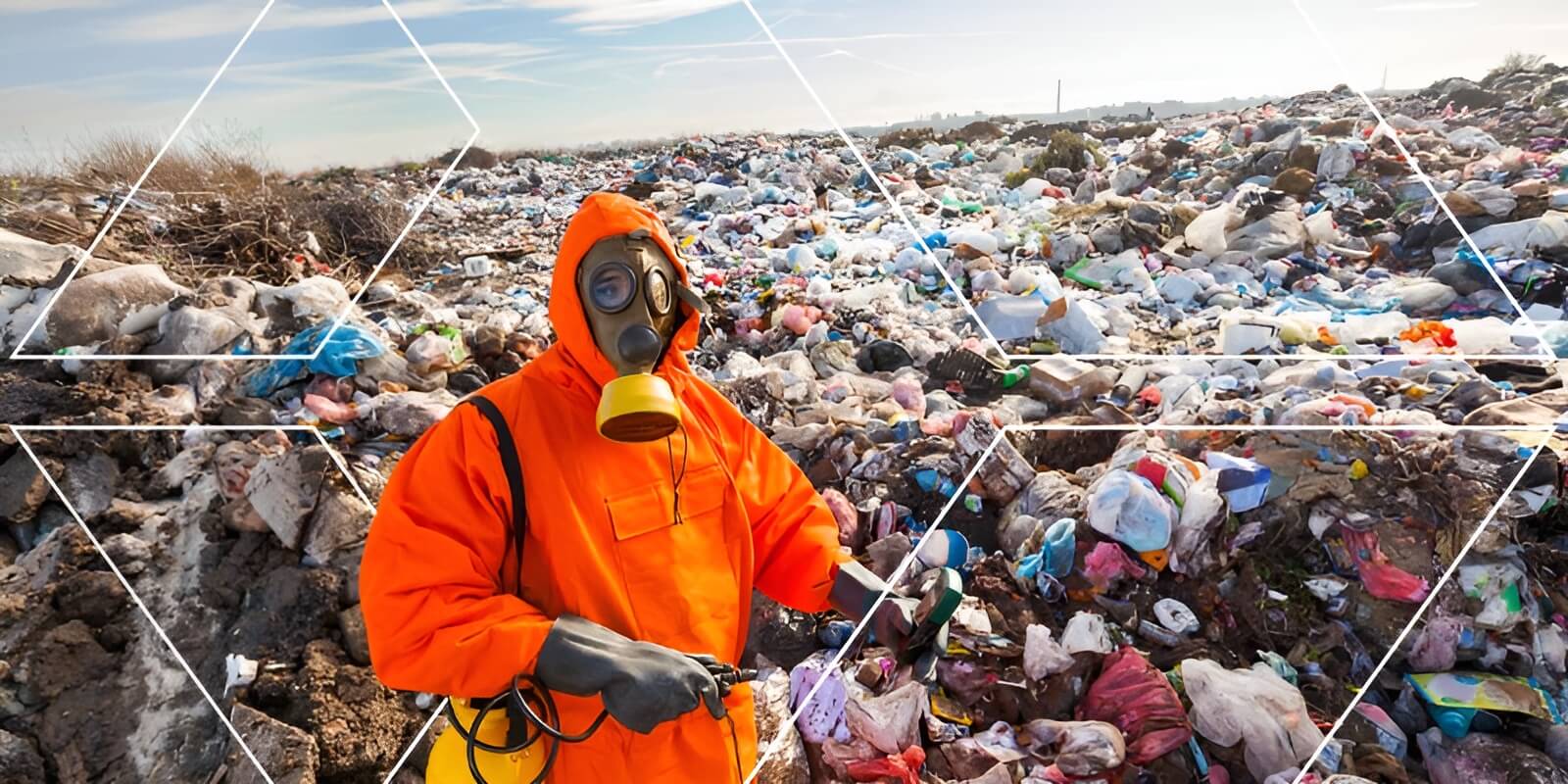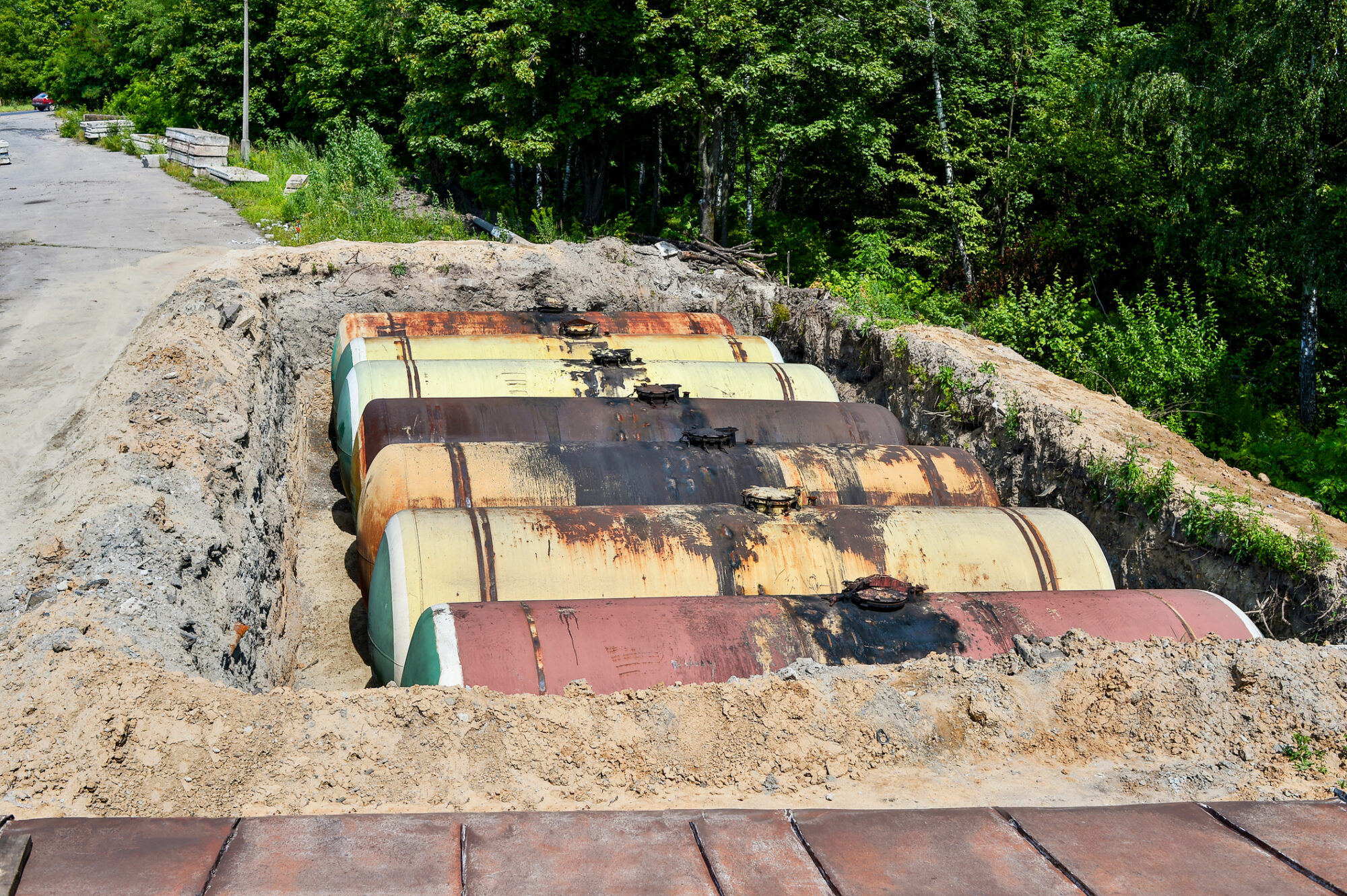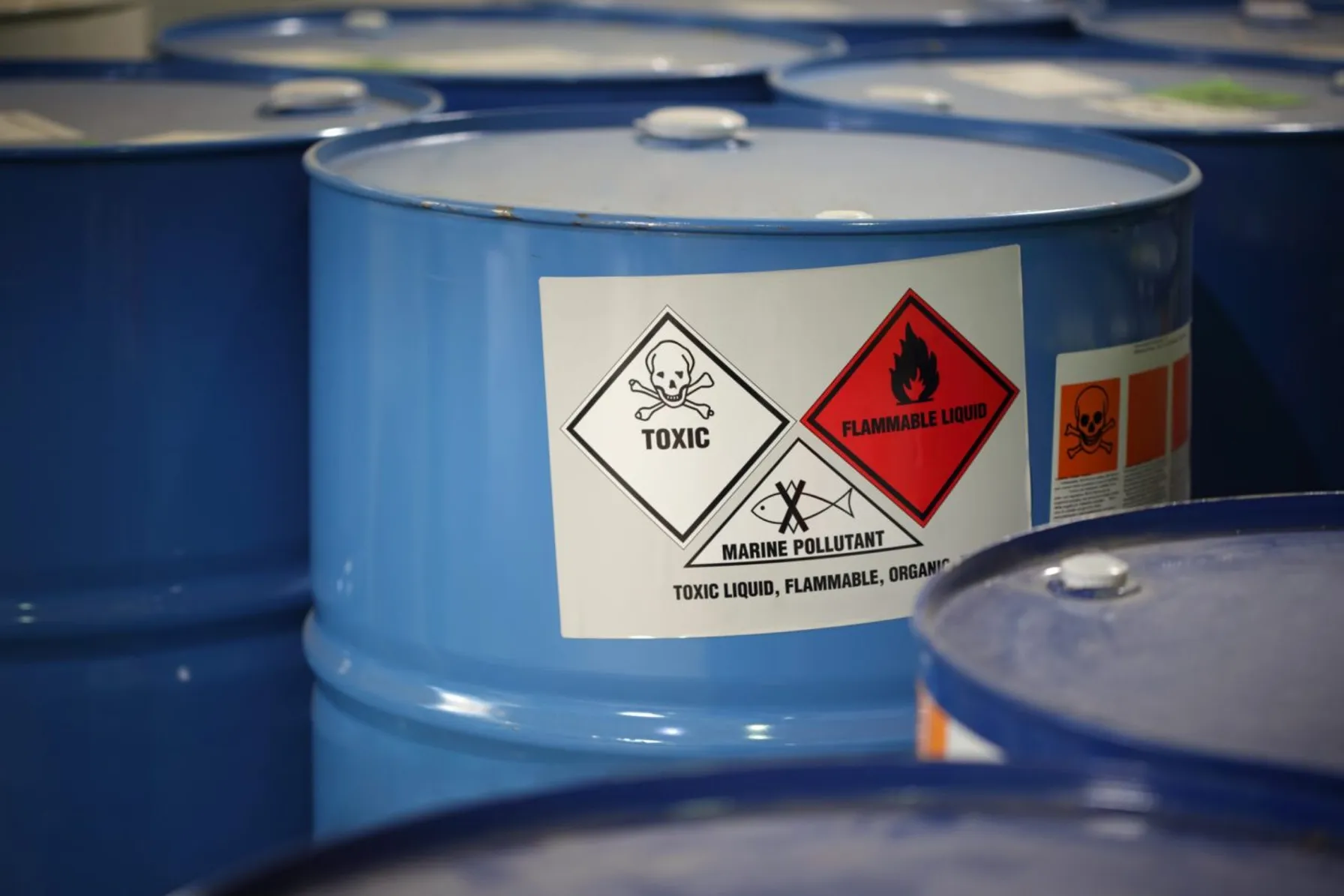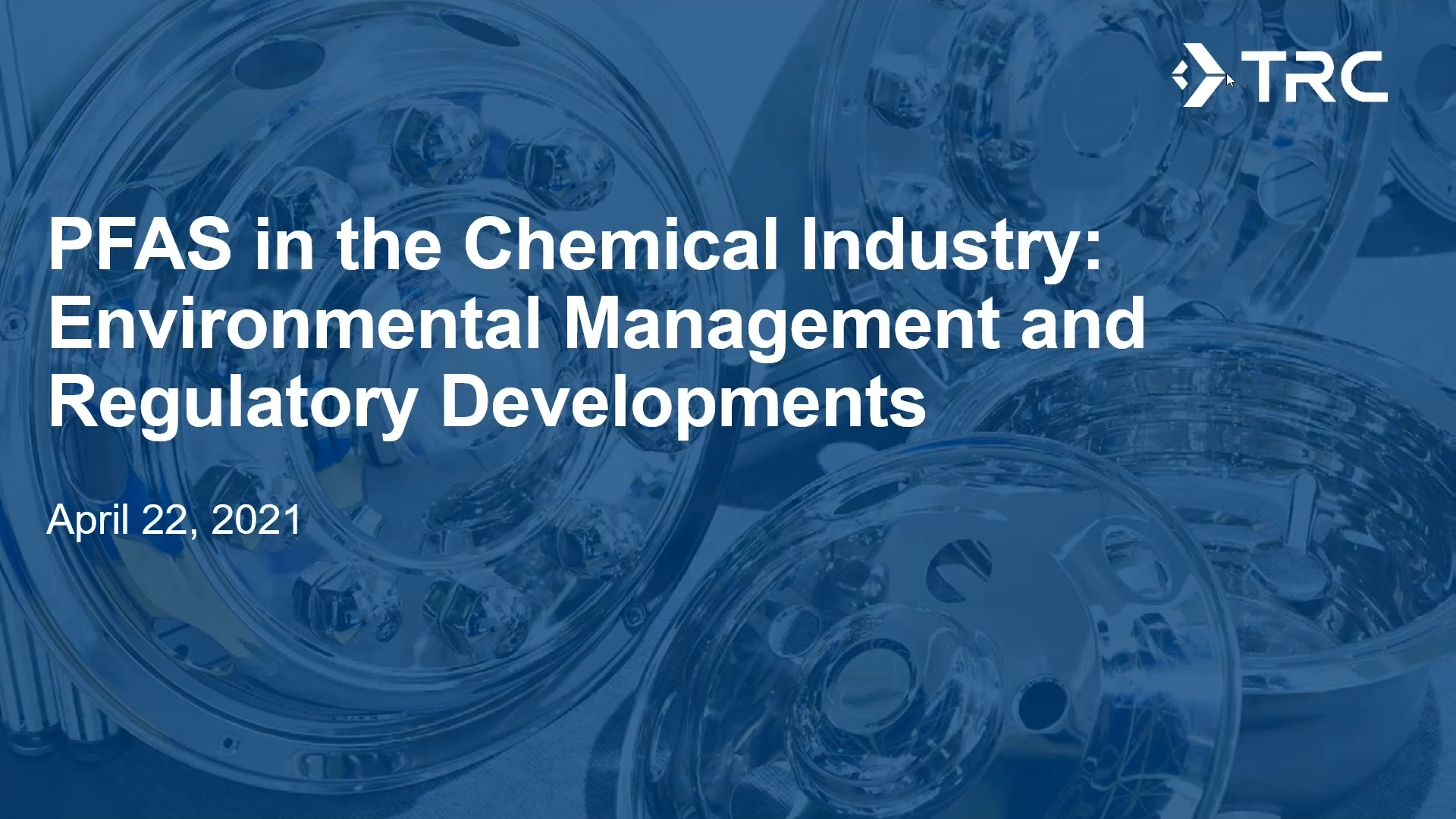TPH Risk-Based Strategies
This presentation discusses recent developments in Total Petroleum Hydrocarbons (TPH) risk-based strategies. The unique fate and transport properties of TPH- specifically in biodegradation and metabolite production—affect how risk should be assessed at the site. Understanding TPH analytical data, CSM and regulatory framework is critical in determining realistic risk management options on the road to site closure.
Contact Jenny Phillips, VP, Director of Technical Development Unit and CORE at jkphillips@trccompanies.com to learn more about TRC’s risk assessment capabilities.
Related Services
About the CORE
The Center of Research and Expertise (CORE) is a multidisciplinary team led by proven subject matter experts who are recognized for their technical contributions and knowledge in a wide range of environmental subjects and specialties. Our purpose is to promote the expertise and talents of our team while enabling them to work at the forefront of emerging challenges and solutions. The CORE Teams contribute to the technical advancement of our professional, academic and client communities, as we work to solve clients’ issues through the improvement of science and technologies in our industry. Our CORE Teams also contribute significantly to our culture at TRC, with the intent to support and sustain growth. The work we do within TRC brings immense value to our clients, our company, and our team, and differentiates TRC’s leadership in the markets we serve.
This team supports the growth and promotion of our staff and their technical skills, in over 25 different specialized technical areas.
Partager nos perspectives
Nos praticiens partagent leurs idées et leurs points de vue sur les tendances et les défis qui façonnent le marché.

TRC fait l’acquisition de Paustenbach & Associates, un chef de file en toxicologie, en science de l’exposition et en évaluation des risques
août 27, 2024
Paustenbach & Associates élargira les capacités de TRC dans les domaines de l’évaluation des risques pour la santé et du soutien aux litiges.

Conseils de récupération LNAPL pour les milieux non consolidés
août 20, 2024
Le liquide léger de phase non aqueuse (LNAPL) est un contaminant des eaux souterraines qui n’est pas soluble dans l’eau.

L’EPA réduit le niveau de dépistage du plomb dans le sol résidentiel
février 12, 2024
L’Office of Land and Emergency Management de l’Environmental Protection Agency des États-Unis a publié les directives mises à jour sur le plomb de sol résidentiel pour les sites CERCLA et les installations de mesures correctives rcra

Les effets des SPFA sur la santé humaine
février 1, 2024
Il est essentiel de comprendre ce que les SPFA font au corps, car elles peuvent nuire à la santé humaine. Apprenez-en plus sur les effets des SPFA sur la santé avec les sociétés TRC dès aujourd’hui.

Déchloration du panache de solvant
Décembre 13, 2023
La déchloration anaérobie est un processus biologique qui se produit en l’absence d’oxygène et qui est principalement utilisé pour assainir les composés chlorés, tels que les solvants chlorés.

Assurance de la qualité par rapport au contrôle de la qualité : quelle est la différence et pourquoi est-ce important ?
novembre 17, 2023
Le système d’assurance de la qualité de TRC intègre des outils de contrôle de la qualité tels que la validation des données (DV) de routine et les évaluations de la convivialité des données (DUA).

Validation des données par rapport aux évaluations de la convivialité des données
octobre 19, 2023
La collecte de données environnementales est un processus qui comprend diverses étapes et phases

EPA Issues Clarification of Free Product Removal Requirements
juin 20, 2023
EPA recently clarified requirements for LNAPL recovery and remediation.

EPA Finds Trichloroethylene Presents Unreasonable Risk in Final Risk Evaluation
avril 6, 2023
On Jan 9, 2023, the United States Environmental Protection Agency (EPA) revised the Toxic Substance Control Act (TSCA) to reflect a new risk determination for trichloroethylene (TCE).

Proposed MCLGs and MCLs for PFAS
mars 15, 2023
Final Regulatory Determination for Contaminants on the Fourth Drinking Water Contaminant Candidate List

Risk Communication Challenges for Emerging Issues
février 8, 2023
Risk communication is the exchange of real-time information, advice and opinions between experts and people facing threats to their health, economic or social well-being.

ASTM Phase I Environmental Site Assessment Updates
février 1, 2023
Environmental due diligence is the first step in identifying potential environmental liabilities prior to the acquisition of real estate or business transfers.

VaporSafe™ Continuous Air Monitoring Technology
janvier 9, 2023
VaporSafe™ continuous air monitoring technology can be used as a sustainable solution to identify a vapor intrusion pathway.

PFAS on the Move: Fate and Transport in Sediment
janvier 3, 2023
PFAS tend to sorb to sediment particles and organic matter, which settle at the bottom of a waterbody, creating a reservoir of PFAS that can cycle in the environment for decades.

Equipment Decontamination and Replacement of Legacy Aqueous Film Forming Foams
Décembre 21, 2022
Legacy AFFF used for firefighting are a significant source of PFAS in the environment. With current and expected regulation, many entities are looking for replacements.

Advanced NAPL Site Characterization Tools
Décembre 14, 2022
Advanced NAPL site characterization tools can improve site understanding and remediation performance.

What is TSCA and Why Should I Care?
Décembre 1, 2022
This presentation provides a historical background on TSCA, regulatory requirements, regulated industries and regulated substances.

Preparing Your RMP Facility for a Future of Extreme Weather
novembre 29, 2022
Facilities dealing with hazardous materials must prepare for extreme weather events that pose a risk to their operations and the community.

Washington State Establishes PFAS Cleanup Levels
septembre 21, 2022
The Washington State Department of Ecology (Ecology) recently published a list of 6 PFAS compounds that now have soil and groundwater cleanup levels

New National Emerging Contaminants Research Initiative
septembre 12, 2022
The Executive Office of the President of the United States announced a National Emerging Contaminant Research Initiative

EPA Issues Proposed Rule Designating PFOA and PFOS as Hazardous Substances
septembre 7, 2022
The EPA has issued a pre-publication version of a proposed rule to designate two PFAS compounds as hazardous substances under CERCLA.

About Endotoxins
septembre 1, 2022
Levels of endotoxins have been associated with indoor air quality complaints and certain respiratory diseases in many types of buildings. Learn more.

How to Prevent Infectious Disease in the Workplace
septembre 1, 2022
There are various ways infectious diseases can spread throughout the workplace. Learn how they spread and what to do next to prevent ill-health.

PFAS Forensics – Identify the Source of PFAS
juillet 8, 2022
Forensics and source identification is necessary to detect the unique PFAS chemical signatures

EPA Announces Updated Drinking Water Health Advisories for Four PFAS Chemicals: PFOS, PFOA, PFBS, & GenX
juin 24, 2022
On June 15, 2022, the EPA released updated Health Advisory Levels for four per- and polyfluoroalkyl substances (PFAS) in drinking water

TPH Risk-Based Strategies
mai 2, 2022
This presentation discusses recent developments in Total Petroleum Hydrocarbons (TPH) risk-based strategies.

PFAS Compounds & Toxics Release Inventory
avril 26, 2021
The National Defense Authorization Act of 2020 added 172 PFAS compounds to the list of chemicals that must be evaluated for reporting.

Ecological Risk of PFAS from AFFF-Impacted Sites
juin 30, 2020
The facts on evaluating exposure to wildlife

TRC’s Reporting Tool Can Help Identify New PFAS under the TRI
mai 19, 2020
While utilities often work in technical silos, NERC auditors are trained to cross check compliance evidence and data between interrelated standards.

Jenny Phillips
Jenny Phillips, Director of Technical Development, VP – Jenny Phillips leads the Technical Development Unit of TRC, focusing on Emerging Contaminants. She is an expert in human health and ecological risk assessment with a focus in risk communication and stakeholder discussions. Ms. Phillips also leads TRC’s Center for Research and Expertise which includes 30+ technical teams. Contact Ms. Phillips at JPhillips@trccompanies.com.

